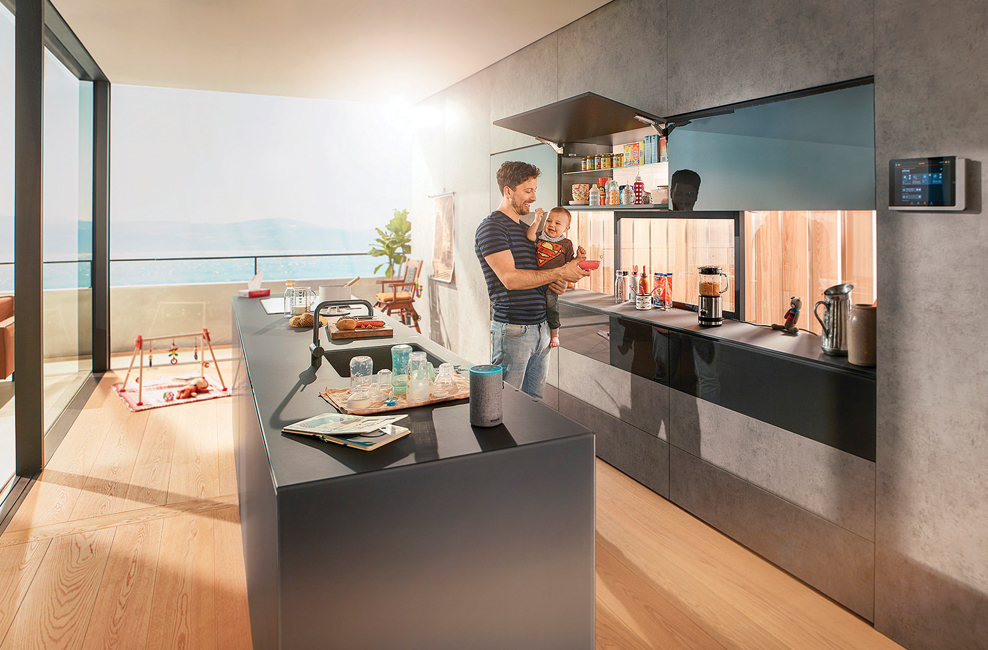July is normally an exciting time for the Australian and New Zealand furniture and cabinet industries with new and interesting equipment and products at the bi-annual AWISA exhibition. The show may have been cancelled but your preferred supplier is still eager to provide you with the very latest technologies available.
As I write this, I realise some manufacturers would have been at Xylexpo in Milan this last week in May, while most would be looking forward to AWISA in early July. Add the cancellation of Holz Handwerk in Nuremberg early this year and it’s been a tough year for trade shows. At Supplier we don’t imagine anyone will be traveling to a trade show until Interzum and Ligna, over a year away now but still with questions as to how many overseas visitors will actually make the trip to Germany.
Analysts are saying business travel won’t get back to normal for two more years so the next show you can attend may very well be AWISA in 2022. For now, most machinery manufacturers would be concentrating on Ligna next year as the first major event to put their companies back on the map. The COVID-19 crisis has seen companies send most non-essential workers home to work, and manufacturing has been slowed. Delivery dates may be longer than usual and of course, product development has been affected. Almost no supplier is likely to release new product when no one is buying.
Companies will release new product between shows, but there is nothing like a big bash and a major trade show is the perfect opportunity to get industry and the trade media together for a major new release. As far as technology is concerned, we may see something new in November if the Italian Xylexpo exhibition goes ahead but pundits see this as too soon. It could be a potential financial disaster if the conditions are not right. However, the German interzum and Ligna show organisers are still proceeding as if those events will take place mid-2021. We will see.
The world is in a temporary lull as the current situation stabilises, but it is certain that business will resume after the crisis. Trade fairs have a special significance because they serve as a driver and trendsetter for industry. Beyond this, trade fairs create space and encounters that cannot be depicted virtually. The industry focus should perhaps change as customers re-evaluate the way they live and look at what is important in their lives. Not only will the home be a space for multifunctional living, consumers will also begin to rethink styling, layouts, and proportions in line with changing behaviours and more time spent indoors.
In times of crisis, creativity will flourish, and the Australian industry is particularly adept at giving the customer what they want. Carla Buzasi speaks for WGSN, the ‘World’s Global Style Network’ and says, “We are re-imagining what consumers will want in a post-Covid-19 world. We need to imagine a different future. Plan for multiple scenarios. Design for a new kind of consumer.” One particular suggestion is technology to connect those at home via virtual means or tech innovations. Some of the furniture and cabinet hardware companies like Blum and Häfele have already started to produce for this purpose.
European machinery producers have been through a few challenging years. 2016 to 2018 sales were on a high, but exports fell almost double digits in 2019 with Australia recording 38% fewer machines from Italy, our biggest source of new equipment, with a value of just over 33 million Australian Dollars. The Italian Acimall Studies office says this can only get worse after the dramatic events of the first months of 2020. In Germany, production generally continued during the crisis. Australian suppliers like Multicam CNC; Ville-Tec; Harp Industries; Kitchen King (New Zealand); Timber Tools; CarbiTool; Nikpol and Jobman (production software) may still be affected in sourcing overseas parts and products, but only marginally, and some may not affected at all.
Industry 4.0 will continue to be a focus for technological change. By 2021 Homag Group expects to be able to provide digital solutions for all customer groups. Biesse Group has already committed to achieving this goal. No longer the province of the biggest Tier-one Australian manufacturer’s, the typical 8-10 person small to medium Australian enterprise (SME) will be able to make use of technologies from all the major suppliers that only a few years ago were just ideas. Things like virtual planning; integration of machines; predictive maintenance done with virtual reality.
As the crisis abates, there is still plenty of good news starting with ground-breaking machinery technologies released from Altendorf and Felder. Egger (Nikpol) and Fenix continue to break new ground with surfaces. Prestigious awards went to the Grass Kinvaro T-Slim flap lift system; BECK’s innovative wood nail system and Leuco for their Airstream tooling. Fully integrated production cells can now be provided for even the smallest enterprises by the major suppliers Biesse; Homag; SCM and other equipment brought in by agents. It’s going to be an exciting time when things finally get back to ‘normal’ whatever that may be.
Pictured: Blum digital kitchen

